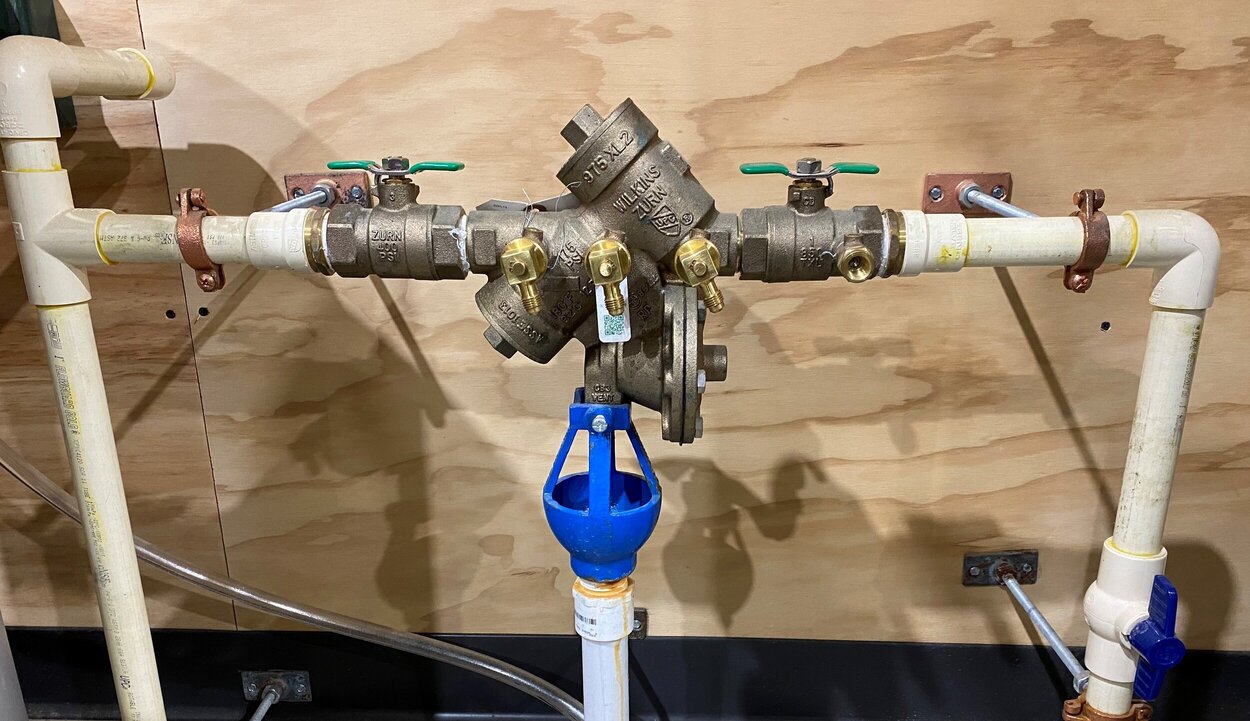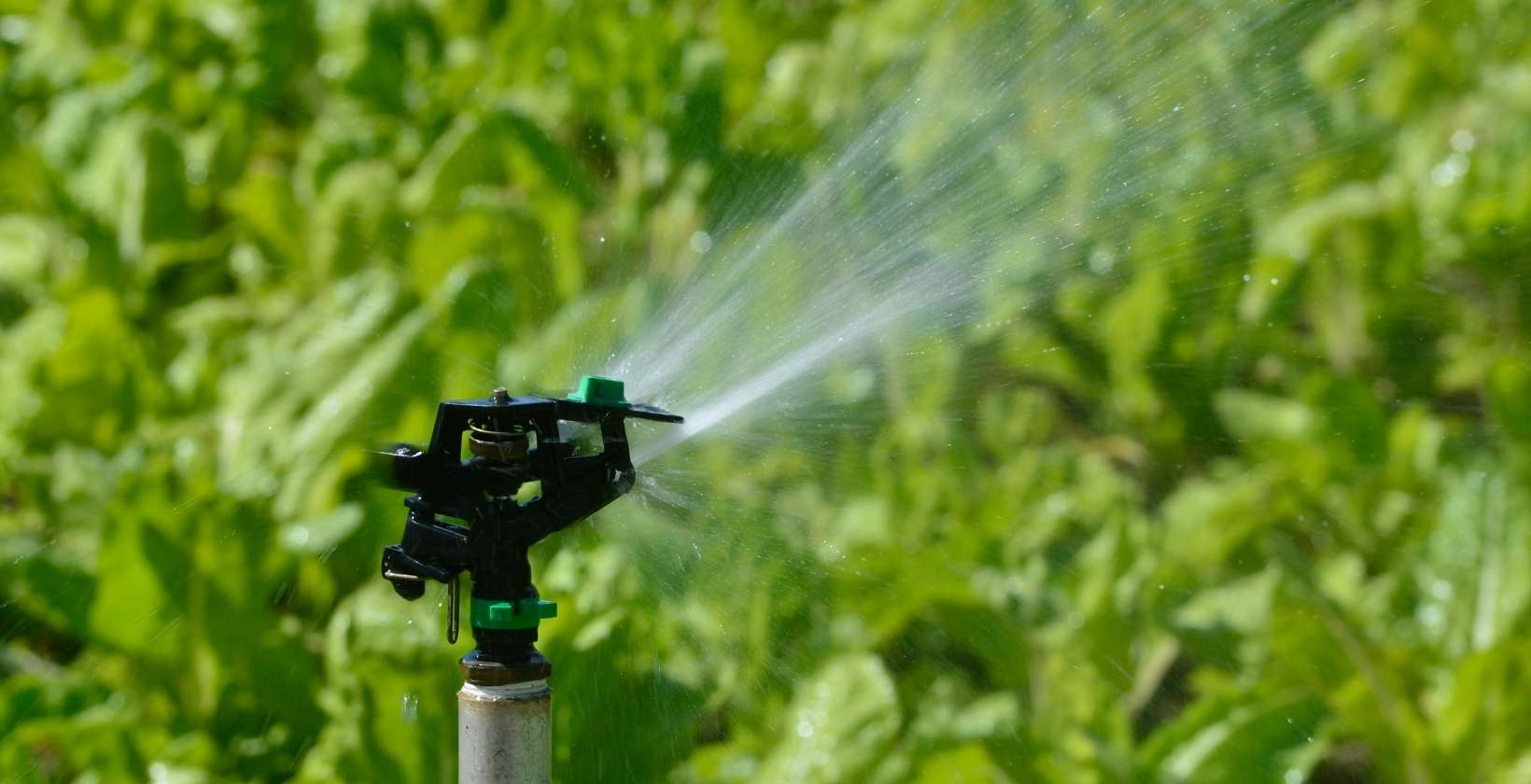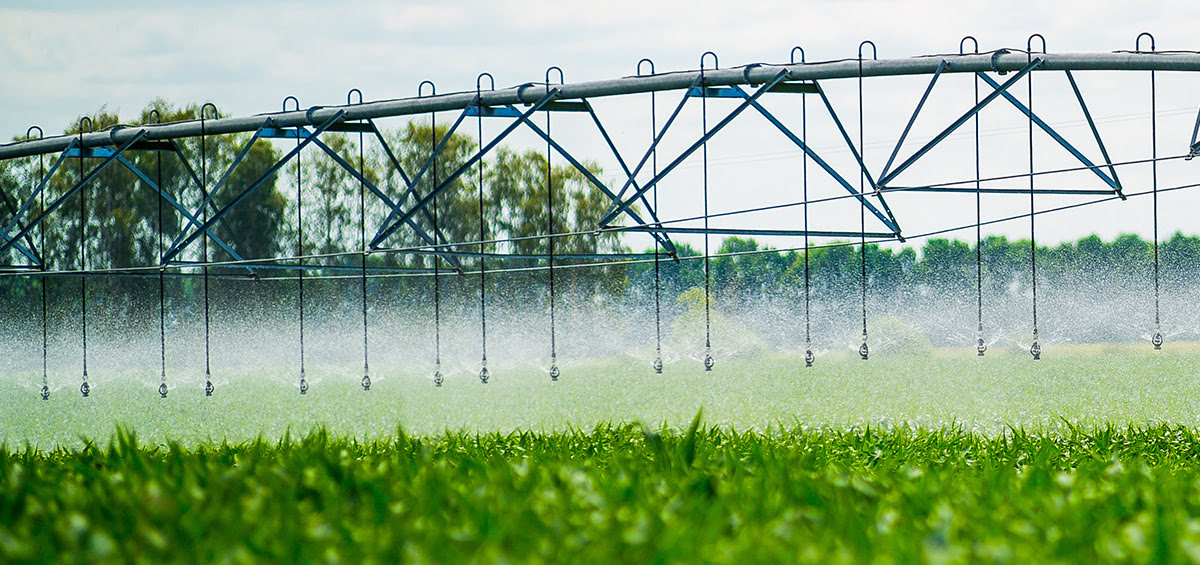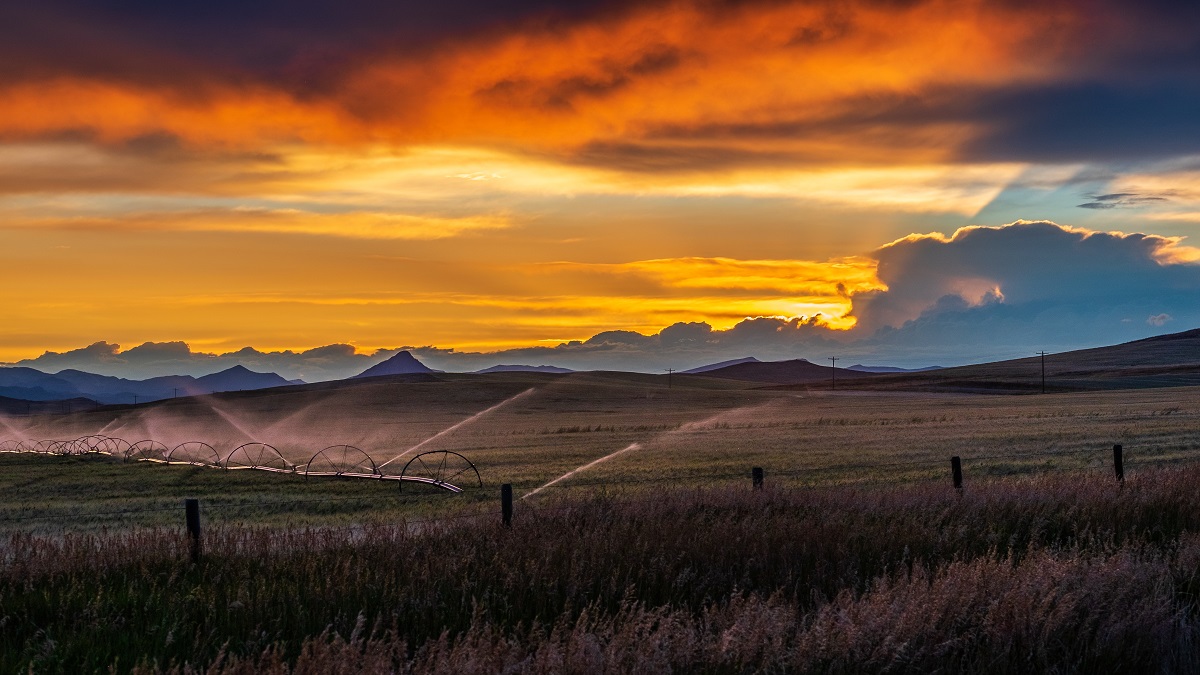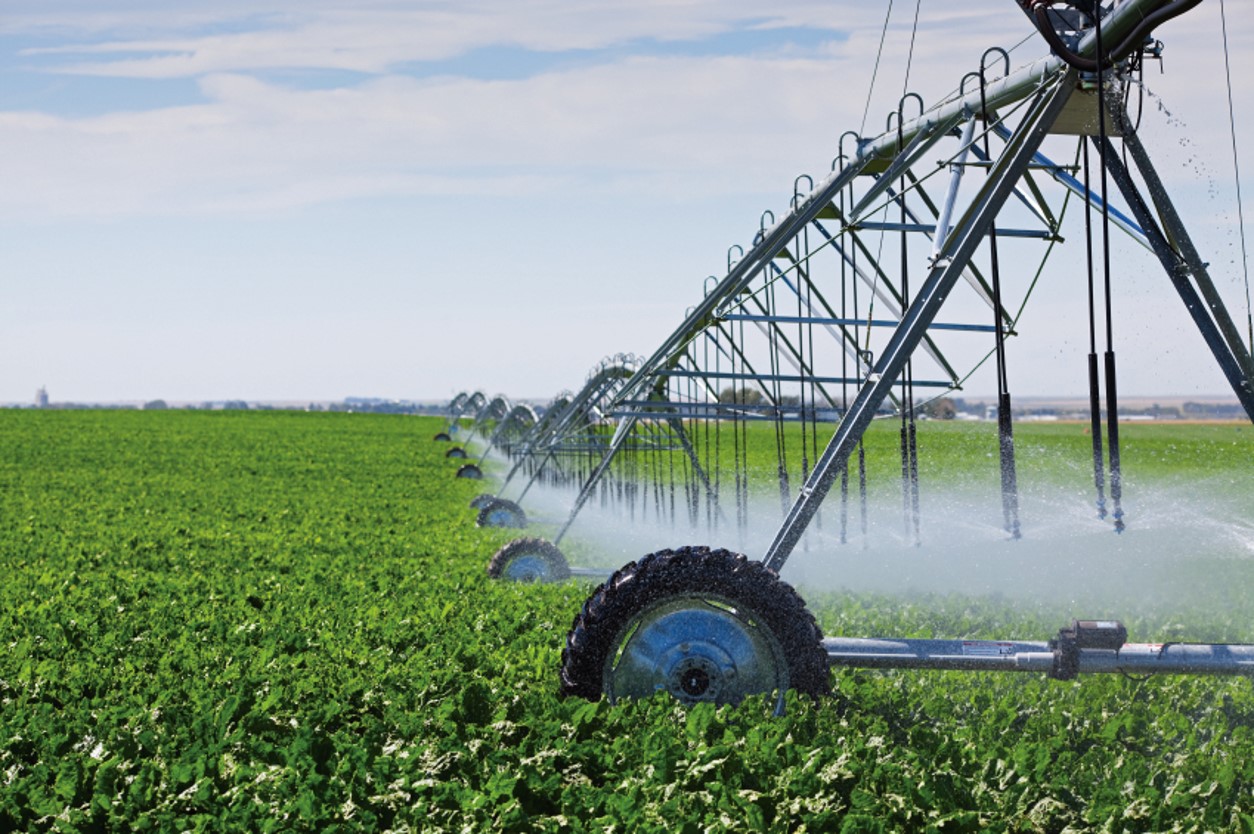Home>Gardening Basics>Tools and Equipment>What Are The Advantages Of Irrigation
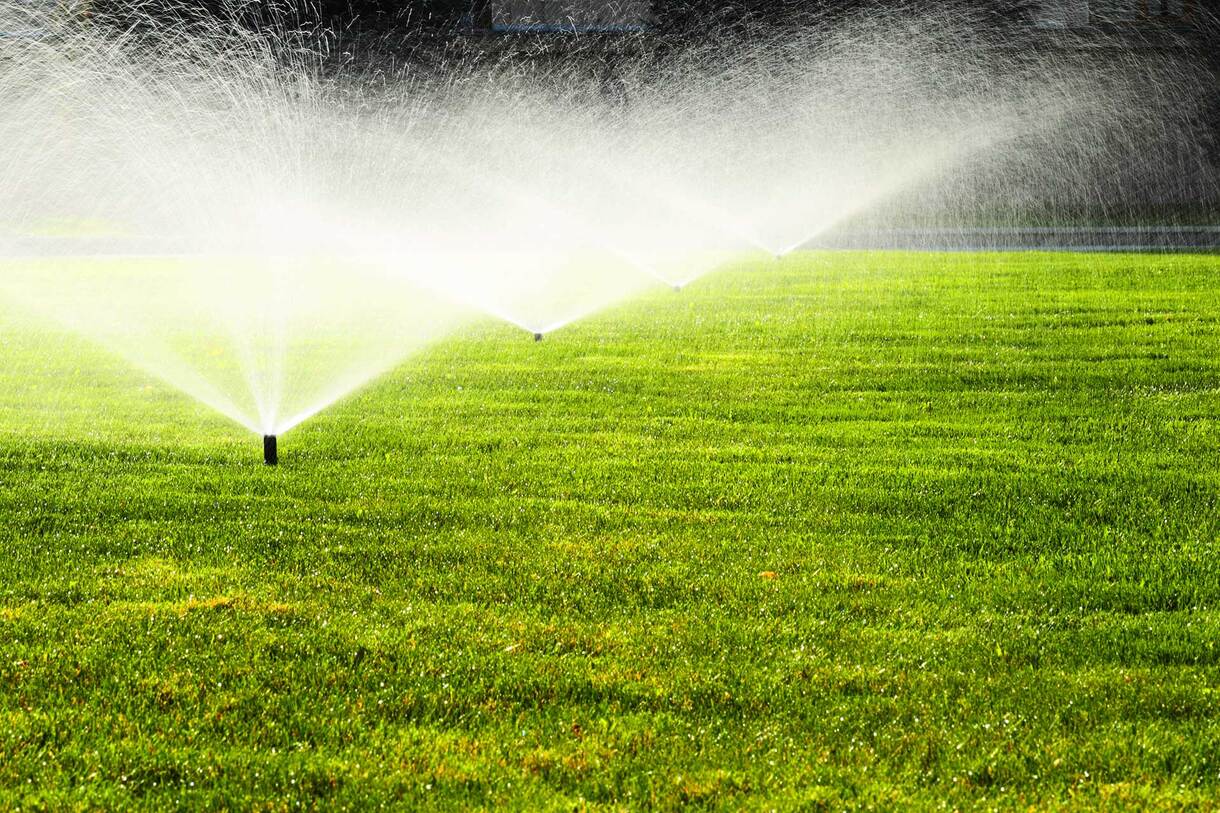

Tools and Equipment
What Are The Advantages Of Irrigation
Published: November 14, 2023
Discover the benefits of irrigation and how tools and equipment contribute to efficient watering. Enhance your landscape with our expert tips and guidance.
(Many of the links in this article redirect to a specific reviewed product. Your purchase of these products through affiliate links helps to generate commission for Chicagolandgardening.com, at no extra cost. Learn more)
Table of Contents
Introduction
Irrigation is a fundamental practice in agriculture that involves supplying water to crops to ensure their growth and productivity. It has been used for centuries to overcome the limitations of seasonal rainfall and provide a consistent water supply to plants. The use of irrigation systems has revolutionized farming, allowing farmers to cultivate crops in areas with inadequate rainfall and improve overall agricultural production.
Irrigation offers numerous advantages that directly contribute to the success of modern agriculture. This article will delve into the key benefits of irrigation and why it plays a pivotal role in ensuring food security and sustainable farming practices.
By providing plants with an adequate and continuous water supply, irrigation significantly enhances crop yield and productivity. Unlike relying solely on rainfall, which may be inconsistent and insufficient, irrigation allows farmers to control and optimize water availability for their crops throughout the growing season. This consistency enables plants to thrive and reach their full potential, resulting in higher yields and more abundant harvests.
Efficient water usage is another advantage of irrigation. Compared to traditional surface-water methods where water is prone to evaporation and runoff, modern irrigation systems deliver water directly to the root zone of plants, minimizing wastage. This targeted approach ensures that every drop of water is utilized effectively, maximizing water efficiency and conserving this valuable resource.
Moreover, irrigation systems provide farmers with greater control over the timing and amount of water applied to their fields. This precision allows farmers to tailor irrigation practices to match the specific needs of different crops and growth stages. By supplying water when and where it is needed, farmers can optimize plant growth and reduce the risk of water stress or waterlogging, leading to healthier plants and increased crop quality.
Increased Crop Yields
Irrigation plays a vital role in increasing crop yields and maximizing agricultural productivity. By providing a consistent and controlled water supply, irrigation ensures that crops receive the necessary moisture required for optimal growth and development.
One of the primary factors that limit crop yields is insufficient rainfall. In regions with erratic or inadequate rainfall patterns, relying solely on natural precipitation can result in crop failure or low yields. However, irrigation mitigates this risk by allowing farmers to supplement the available rainfall with additional water through irrigation systems.
With irrigation, farmers have the ability to provide crops with the appropriate amount of water at the right time. This precision in watering ensures that plants do not experience water stress or become overwhelmed with excessive moisture. By maintaining the optimal moisture levels in the soil, irrigation promotes healthy root growth, nutrient absorption, and photosynthesis, all of which are essential for robust plant development and high crop yields.
Irrigation also enables farmers to cultivate crops in regions that would otherwise be unsuitable for farming due to limited rainfall or arid conditions. By bringing water to these areas, irrigation helps to unlock their agricultural potential. This expansion of arable land not only increases crop production but also contributes to food security by reducing the reliance on limited fertile regions for sustenance.
Additionally, irrigation allows for the cultivation of high-value crops that require consistent moisture levels, such as fruits, vegetables, and cash crops. These crops often have specific water requirements that cannot be met by rainfall alone, making irrigation essential for their successful cultivation. As a result, farmers can diversify their crop selection and capitalize on market demands, leading to increased profitability.
Furthermore, irrigation helps to optimize the use of other agricultural inputs, such as fertilizers and pesticides. With a reliable water supply, farmers can precisely apply these inputs, ensuring that they penetrate the root zone and are effectively taken up by the plants. This efficient use of resources enhances nutrient uptake and protects crops from pests and diseases, resulting in healthier plants and higher yields.
Efficient Water Usage
One of the key advantages of irrigation is its ability to promote efficient water usage in agriculture. Traditional surface-water irrigation methods often suffer from substantial water loss due to evaporation, runoff, and inefficient distribution. However, modern irrigation systems have significantly improved water management and conservation.
Irrigation systems allow for precise water delivery directly to the root zone of plants, minimizing wastage. Through methods such as drip irrigation or sprinkler systems, water is applied in a controlled and targeted manner, optimizing water usage by delivering it exactly where it is needed most. This efficient distribution reduces evaporation and runoff, ensuring that water resources are utilized effectively.
Another aspect of efficient water usage in irrigation is the ability to schedule irrigation based on crop water requirements. By monitoring soil moisture levels, weather conditions, and plant needs, farmers can determine the ideal timing and duration of irrigation. This approach reduces the risk of over- or under-irrigation, ensuring that crops receive the right amount of water at the right time, improving water-use efficiency.
Furthermore, the use of advanced technologies in irrigation systems, such as soil moisture sensors and automated controllers, enables farmers to monitor soil moisture levels in real-time. This data-driven approach allows for more accurate irrigation decisions, preventing unnecessary water usage and conserving water for future needs.
In addition to reducing water wastage, efficient water usage in irrigation has broader environmental benefits. By conserving water resources, farmers contribute to the sustainability of local water sources, preserving them for other uses and minimizing the strain on water ecosystems.
Moreover, efficient water usage in irrigation can also help mitigate the negative impacts of drought conditions. In areas where water availability is limited, irrigation systems that optimize water usage can help to sustain agricultural production during dry spells. This resilience is especially important for food security, allowing crops to survive and thrive even in the face of prolonged drought periods.
Overall, efficient water usage in irrigation not only optimizes water resources but also promotes sustainability, reduces environmental impact, and safeguards agricultural production in water-scarce regions.
Control over Timing and Amount of Water
Irrigation systems provide farmers with precise control over both the timing and amount of water applied to their fields. This level of control is crucial for optimizing plant growth, managing water resources efficiently, and adapting to varying environmental conditions.
By having the ability to determine when to irrigate, farmers can align their irrigation practices with the specific needs of their crops. Different crops have varying water requirements at different stages of growth. With irrigation, farmers can tailor their watering schedules to match these requirements, ensuring that plants receive water when they need it the most.
Moreover, irrigation systems offer flexibility when it comes to adapting to unexpected weather events or changing environmental conditions. For example, during periods of excessive heat or drought, farmers can increase the frequency or duration of irrigation to prevent water stress and maintain crop health.
On the other hand, irrigation systems also allow farmers to reduce or withhold water during periods of heavy rainfall or cooler weather. This flexibility avoids over-saturation of the soil and helps prevent waterlogging, which can be detrimental to plant growth and root health.
Furthermore, by precisely controlling the amount of water applied, farmers can avoid water wastage. Using methods such as drip irrigation or precision sprinklers, water can be delivered directly to the root zone of plants, minimizing evaporation and runoff. This targeted approach ensures that crops receive the optimal amount of water without any unnecessary loss.
With traditional surface-water irrigation methods, it is often challenging to control the amount of water applied accurately. This can lead to inefficient use of water and potential damage to crops. However, modern irrigation systems, equipped with technologies such as flow meters and automated controllers, allow for precise measurement and regulation of water flow, contributing to improved water-use efficiency.
Overall, the control over timing and amount of water provided by irrigation systems grants farmers the flexibility to adapt to crop needs and environmental conditions. This precision and efficiency in irrigation enhance crop health and productivity while minimizing water wastage and potential crop damage.
Reduction of Labor Requirements
Irrigation systems offer significant advantages in reducing labor requirements for agricultural practices. Unlike traditional manual watering methods, which can be time-consuming and labor-intensive, irrigation systems automate the process of delivering water to crops, saving farmers both time and physical effort.
With traditional watering methods such as using buckets or hoses, farmers often spend hours manually watering each plant or row. This labor-intensive process becomes impractical, especially when dealing with large-scale agricultural operations. Irrigation systems, on the other hand, eliminate the need for manual watering by providing a consistent and automated water supply to crops.
Once an irrigation system is installed, it functions without constant supervision or physical labor. Farmers can simply set up the system, adjust the timers or controllers, and let the system efficiently irrigate their crops. This allows farmers to allocate their time and labor to other essential farming tasks, such as crop monitoring, pest control, and maintenance of farm equipment.
Furthermore, irrigation systems can be programmed to operate during optimal times, such as during the early morning or evening, when evaporation rates are lower and water absorption is maximized. This eliminates the need for manual watering during inconvenient and physically demanding periods, such as the peak heat of the day.
In addition to reducing manual labor, the automation provided by irrigation systems also ensures a more consistent and efficient water supply. Manual watering methods may result in uneven distribution of water, leading to over-watering in some areas and under-watering in others. However, irrigation systems deliver water evenly and precisely to the root zones of plants, eliminating the need for laborious and uneven manual watering.
By reducing labor requirements, irrigation systems enable farmers to make more efficient use of their time and resources. This allows them to manage larger areas of land or invest their labor in other crucial farm activities, ultimately resulting in increased productivity and profitability.
Overall, the reduction of labor requirements through the use of irrigation systems streamlines agriculture operations, enhances productivity, and provides farmers with more flexibility in managing their time and resources effectively.
Improvement in Crop Quality
Irrigation systems play a critical role in improving the quality of crops by providing consistent and controlled water supply, essential for their optimal growth and development. The controlled water delivery offered by irrigation systems ensures that crops receive the necessary moisture at crucial stages, leading to improved crop quality in various ways.
One important aspect of crop quality is size and uniformity. Adequate water supply through irrigation promotes uniform growth among plants, leading to crops that are more visually appealing and marketable. By providing a consistent water source, irrigation supports balanced plant development, reducing variations in size and appearance within a crop.
In addition to size and uniformity, irrigation also contributes to crop quality by enhancing nutrient uptake. Water is essential for the absorption and transport of nutrients from the soil to the plant’s roots. With a reliable water supply from irrigation, plants have access to a steady stream of essential nutrients, promoting their healthy growth and nutrient uptake. This results in crops with higher nutritional content and improved taste.
Irrigation also has a positive impact on crop quality through the prevention of water stress. Inadequate water supply or irregular watering can lead to water stress in plants, affecting their growth and overall quality. By providing a consistent and controlled water supply, irrigation helps to prevent water stress and maintain optimal moisture levels in the soil. This promotes healthy plant development, better nutrient absorption, and improved crop quality.
Moreover, irrigation plays a crucial role in improving crop quality by reducing the incidence of diseases and pests. Water-stressed plants are more vulnerable to diseases and insect infestations. By maintaining optimal moisture levels, irrigation helps to strengthen plants’ natural defense mechanisms, making them more resilient to pests and diseases. This results in healthier crops with higher quality produce.
Furthermore, irrigation systems allow for the application of water-soluble fertilizers, nutrients, and other beneficial substances directly to the root zone of plants. This targeted approach ensures efficient nutrient uptake and utilization, leading to improved crop quality. Customized irrigation systems, such as fertigation systems, enable farmers to simultaneously provide water and nutrients to crops, optimizing their growth and enhancing crop quality.
Overall, irrigation systems contribute significantly to the improvement of crop quality by providing consistent water supply, promoting uniform growth, enhancing nutrient uptake, preventing water stress, and reducing the incidence of pests and diseases. These factors collectively result in higher quality crops that meet market standards and consumer demands.
Mitigation of Drought Effects
Drought is a severe challenge for agricultural production, causing water scarcity and negatively impacting crop growth and yield. Irrigation systems play a crucial role in mitigating the effects of drought and ensuring the continued productivity of agricultural lands.
During periods of drought, rainfall is significantly reduced, leading to inadequate moisture in the soil. This lack of water availability hampers crop growth and can result in crop failure. However, irrigation provides a dependable water source, allowing farmers to supply the necessary moisture required for plant survival during dry spells.
Irrigation systems offer flexibility in water management, enabling farmers to compensate for the lack of rainfall. By adjusting irrigation schedules and providing supplemental water to the crops, farmers can mitigate the impact of drought and maintain optimal moisture conditions in the soil.
Moreover, irrigation systems provide farmers with the ability to target water directly to the root zone of plants. This precision in water delivery ensures effective water use, minimizing wastage and maximizing the benefits of available water during drought periods.
Additionally, irrigation systems offer the opportunity to implement water-saving techniques, such as drip irrigation or micro-sprinklers. These methods reduce water loss through evaporation and runoff, making more efficient use of the limited water resources during drought conditions.
Another important aspect of irrigation in drought mitigation is the storage and utilization of water reserves. Some irrigation systems include reservoirs or ponds for storing water during periods of abundant rainfall. These water reserves can then be used during dry periods to supplement irrigation needs, helping to sustain crop growth and minimize the impact of drought.
Farmers who have access to irrigation systems are better equipped to adapt to changing climatic conditions and mitigate the negative effects of drought. With irrigation, they can continue to cultivate their crops and maintain agricultural productivity even during prolonged periods of water scarcity.
Overall, irrigation systems are essential tools in mitigating the effects of drought on agriculture. By providing a reliable water supply, enabling precise water delivery, and promoting efficient water use, irrigation assists farmers in preserving crop yield, ensuring food security, and mitigating the devastating consequences of drought.
Expansion of Agricultural Land
Irrigation systems have played a crucial role in expanding the amount of arable land available for agricultural production. By providing a reliable water supply in regions with limited rainfall, irrigation allows farmers to cultivate land that would otherwise be unsuitable for farming.
In areas where rainfall is scarce or unpredictable, traditional rain-fed agriculture is often challenging or unviable. However, with the implementation of irrigation systems, these lands can be transformed into agricultural zones. By delivering water directly to the crops through irrigation, farmers can overcome the limitations imposed by low rainfall and grow a wide range of crops.
Irrigation systems enable the use of marginal lands that may have limited rainfall or poor soil conditions. These lands can be transformed into productive agricultural areas by providing them with a consistent water supply through irrigation. This expansion of agricultural land helps to meet the growing demands for food production and contributes to global food security.
Furthermore, irrigation allows for the cultivation of high-value cash crops or specialty crops that thrive in specific environments. By providing the necessary water and nutrients, irrigation systems enable farmers to grow these crops in regions where they would not naturally occur. This not only expands the agricultural land but also creates economic opportunities for farmers by capitalizing on market demands.
Irrigation systems also contribute to the overall sustainability of agricultural practices. By enabling farmers to grow crops in areas with limited rainfall, there is reduced pressure on fertile regions for food production. This helps to preserve and protect prime agricultural lands, ensuring their long-term viability for future generations.
Moreover, the expansion of agricultural land through irrigation promotes rural development and economic growth. It allows farmers to increase their production capacity, create job opportunities, and generate income. This leads to improved living standards, reduced poverty rates, and enhanced economic stability in agricultural communities.
It is worth noting that the expansion of agricultural land through irrigation should be done responsibly and sustainably. Proper consideration of water resources, soil conditions, and environmental impacts is necessary to ensure long-term viability and prevent degradation of natural resources.
Overall, irrigation systems have significantly expanded the amount of arable land available for agriculture. By providing a consistent water supply in regions with limited rainfall, irrigation allows for the cultivation of crops in otherwise unsuitable areas, contributes to food security, promotes economic growth, and supports the sustainable development of agriculture.
Conclusion
Irrigation systems have revolutionized agriculture by providing numerous advantages that enhance crop yields, improve water usage efficiency, and allow for greater control over the timing and amount of water applied. The reduction of labor requirements and the improvement in crop quality are additional benefits, while the mitigation of drought effects and the expansion of agricultural land have significant implications for food security and sustainable farming practices.
Through irrigation, farmers can overcome the limitations of seasonal rainfall and ensure a consistent water supply for their crops. This reliability results in increased crop yields, maximizing productivity and contributing to food security. The efficient use of water in irrigation systems reduces wastage and conserves this valuable resource, while the precision in water delivery allows for optimal plant growth and crop quality.
Irrigation systems also provide farmers with the benefit of reduced labor requirements. By automating the water delivery process, farmers can allocate their time and resources to other essential farming activities, leading to improved efficiency and productivity.
In regions prone to drought, irrigation plays a crucial role in mitigating the effects of water scarcity by ensuring a reliable water source. By providing supplemental irrigation, farmers can sustain crop growth and minimize the impact of drought on agricultural production.
Additionally, irrigation systems have allowed for the expansion of agricultural land into regions that were previously unsuitable for cultivation. This expansion not only increases agricultural output but also provides economic opportunities for farmers and promotes rural development.
In conclusion, irrigation is a vital tool in modern agriculture, playing a significant role in increasing crop yields, conserving water, reducing labor requirements, improving crop quality, mitigating drought effects, and expanding agricultural land. With the ever-increasing demands for food production and the challenges posed by climate change, irrigation systems will continue to be essential in ensuring sustainable and secure food supplies for present and future generations.

